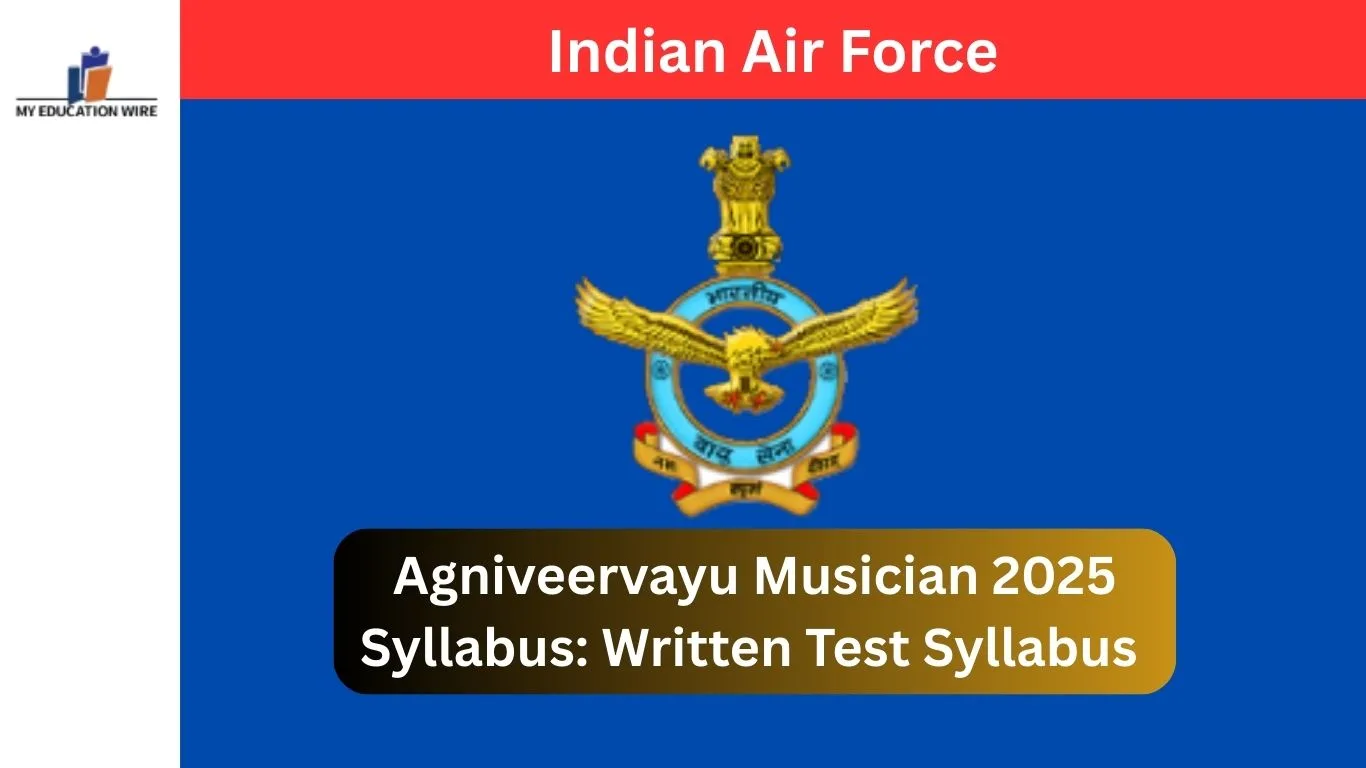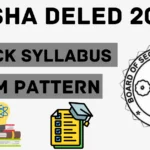If you’re preparing for the Agniveervayu (Musician) recruitment exam, it’s important to know what to study in the English section. The English syllabus is designed to test your understanding of language, grammar, and vocabulary. In this guide, we’ll break down the Agniveervayu Musician 2025 syllabus in easy language so you know exactly what to focus on.
ALSO READ: IMA Admission 2025-26 | Last Date Extended to May 31
Part I: Comprehension Passage
This section has a short paragraph (called a passage) followed by five questions. These questions test how well you understand the passage.

Variety of Questions (Agniveervayu Musician 2025 Syllabus)
- Understanding the Passage:
- What is the main idea or theme of the passage?
- What is the author trying to say?
- What do specific idioms or expressions mean in the passage?
- Can you follow how the ideas develop from one sentence to another?
- Drawing Inferences:
- What is the author’s attitude? Is he being serious, funny, sad, critical, etc.?
- Why did the author say something in a particular way?
- What does the author mean indirectly?
- Understanding Vocabulary:
- Can you replace a word in the passage with another word that means the same?
- Can you identify the synonyms (words with similar meanings) and antonyms (words with opposite meanings) of the words used?
Part II: Grammar
Grammar checks how well you know the rules of English language. It’s important to know the correct way to use words in a sentence. This part includes basic but essential grammar rules.
Topics
- Noun / Pronoun – Gender, Number, and Case
- Know the difference between male/female nouns (boy/girl), singular/plural forms (apple/apples), and subject/object use (he/him).
- Prepositions in Common Use
- Words like in, on, at, under, over, between, behind, with, to, etc.
- Example: The book is on the table.
- Modals
- Words like can, could, may, might, must, shall, should, will, would, etc.
- They express possibility, ability, permission, advice, etc.
- Example: You must finish your work.
- Determiners
Determiners are words that come before nouns to give more information about them. They include: - Articles: a, an, the
Example: I saw a dog. The dog was barking. - Demonstratives: this, that, these, those
Example: These apples are fresh. - Possessives: my, your, his, her, our, their
Example: My brother is tall. - Distributives: either, neither, each, every
Example: Each student must submit the form. - Quantifiers: some, any, much, many, several
Example: Many people like ice cream. - Interrogatives: what, which, whose
Example: Which dress do you like?
Part III: Vocabulary
This section checks how strong your word power is. You need to understand and use the right words in the right context.
What to Study? (Agniveervayu Musician 2025 Syllabus)
- Synonyms (Same Meaning)
- Example: Happy → Joyful
- Learn the meanings of common words and their substitutes.
- Synonyms in Context
- Choose a synonym based on how the word is used in a sentence.
- Antonyms (Opposite Meaning)
- Example: Big → Small
- Learn opposite words and practice using them correctly.
- Antonyms in Context
- Identify which word is the opposite in the given sentence’s meaning.
- One Word Substitution
- Replace a whole sentence or phrase with one word.
- Example: A person who writes books → Author
- Spelling Pitfalls
- Focus on commonly misspelled words.
- Example: Receive (not recieve), Separate (not seperate)


